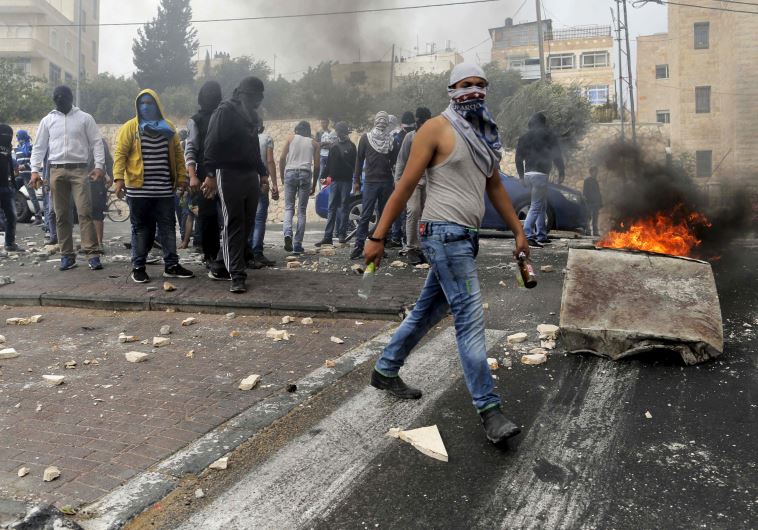Has a third intifada begun?
Regardless of what we call it, this uprising has been laying patiently at our doorstep for two years now, just waiting for a lit fuse to ignite it.
 Stone-throwing Palestinians clash with Israeli police in Sur Baher, a village in the suburbs of east Jerusalem
Stone-throwing Palestinians clash with Israeli police in Sur Baher, a village in the suburbs of east Jerusalem